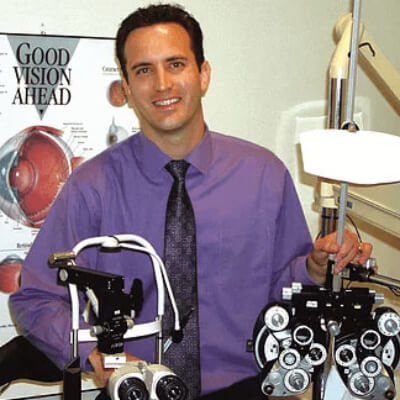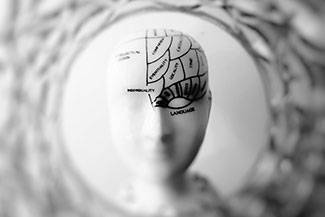Traumatic Brain Injury, Stroke, and Concussions

Neuro-optometrists commonly treat traumatic brain injury, mild traumatic brain injury, and stroke.
Traumatic Brain Injury (TBI)
Because more areas of the brain are used to process vision than any other system, traumatic brain injuries often result in vision problems. In fact, studies show that 90% of TBI patients experience some form of vision disruption, which is caused by interrupted communication between the eyes and the brain.
Mild Brain Injury (MTBI) - Concussions
Though considered mild, a concussion is still a brain injury that can cause ongoing debilitating symptoms and alter the normal function of one's brain.
The most affected demographic are children and teens, and of those, more than 60% experience visual symptoms. Older people are also prone to concussions. If you or a family member has sustained a concussion or even whiplash - such as from a violent blow to the head - we strongly urge you to get your eyes examined as soon as possible.
Stroke
A stroke (also called a cerebrovascular accident, or CVA) occurs when there's a sudden interruption of the blood supply to part of the brain, or a blood vessel in the brain bursts, spilling blood into the spaces surrounding brain cells. The ocular changes associated with stroke can be categorized as sensory (visual acuity and visual field), motor (extraocular muscle motility) and perceptual.
The Intersection of Neurology and Optometry
Neuro-optometric rehabilitation therapy is a customized treatment program for patients whose stroke, traumatic brain injury, concussion, neurological condition or disease has resulted in visual deficits. It applies the latest methods and treatments of neuro-plasticity and vision function to help patients develop or regain the essential visual skills necessary for learning and optimal daily function.
An undiagnosed vision condition, or one resulting from a traumatic brain injury or neurological disease, can result in the following problems:
- Double-vision
- Blurred vision
- Eye-teaming and eye-tracking problems
- Visual field loss
- Extreme sensitivity to light (photophobia)
- Eye focusing problems
As part of an interdisciplinary approach, neuro-optometric rehabilitation therapy targets the underlying cause of the symptoms listed above.
If you or a loved one is suffering from neurological disease, trauma or conditions, visit Dr. Jeremy E. Loy for a comprehensive eye exam and neuro-optometric solutions.
We’re Currently Enrolling New Patients!
Call us or request to book a functional vision assessment at Southwest Family Eye Health Center today. We look forward to helping you or your family member achieve full visual function, which can lead to increased success, confidence and a higher quality of life.



What Others Are Saying About Us
Learn More About Neuro Optometry | FAQ
Neuro-Optometric Rehabilitation Therapy is very effective in resolving a range of vision problems resulting from brain injuries and neurological disorders.
The highly trained Fort Worth-based Dr. Jeremy Loy and Mr. Matt Ange OTR will diagnose issues with eye-teaming, focusing, and visual tracking, and prescribe the most effective neuro-optometric rehabilitation therapy program so that you can live your best life!











